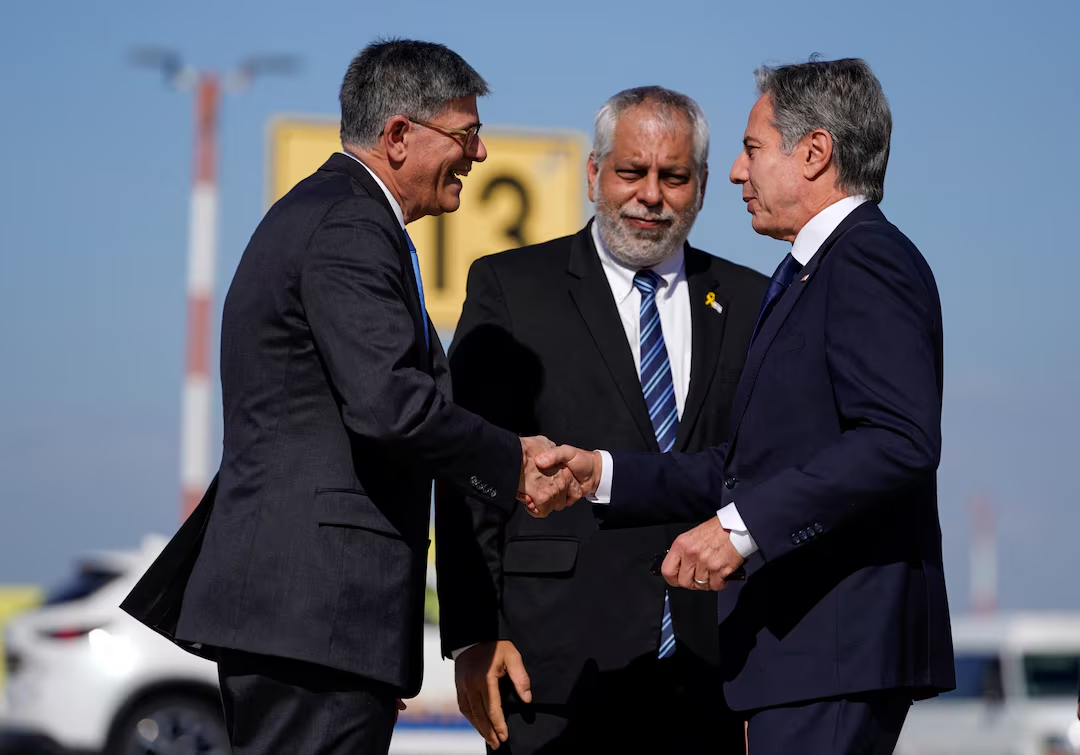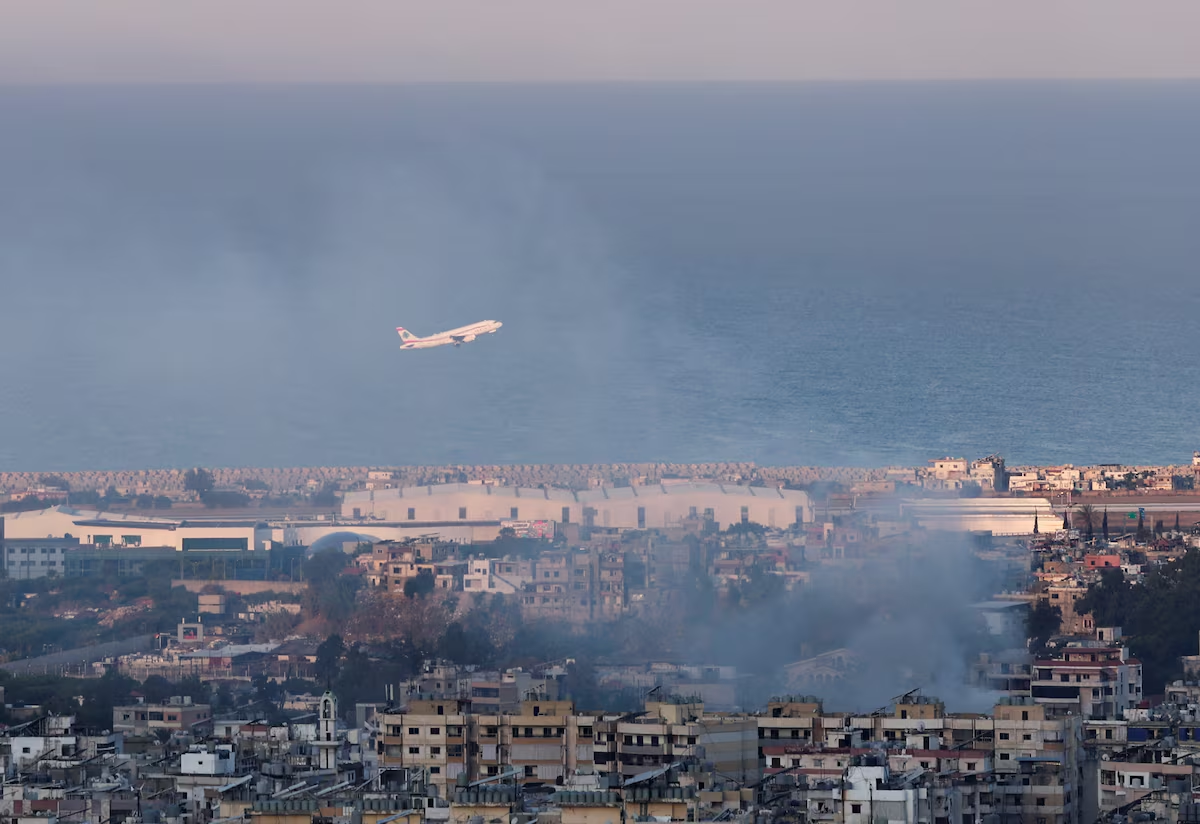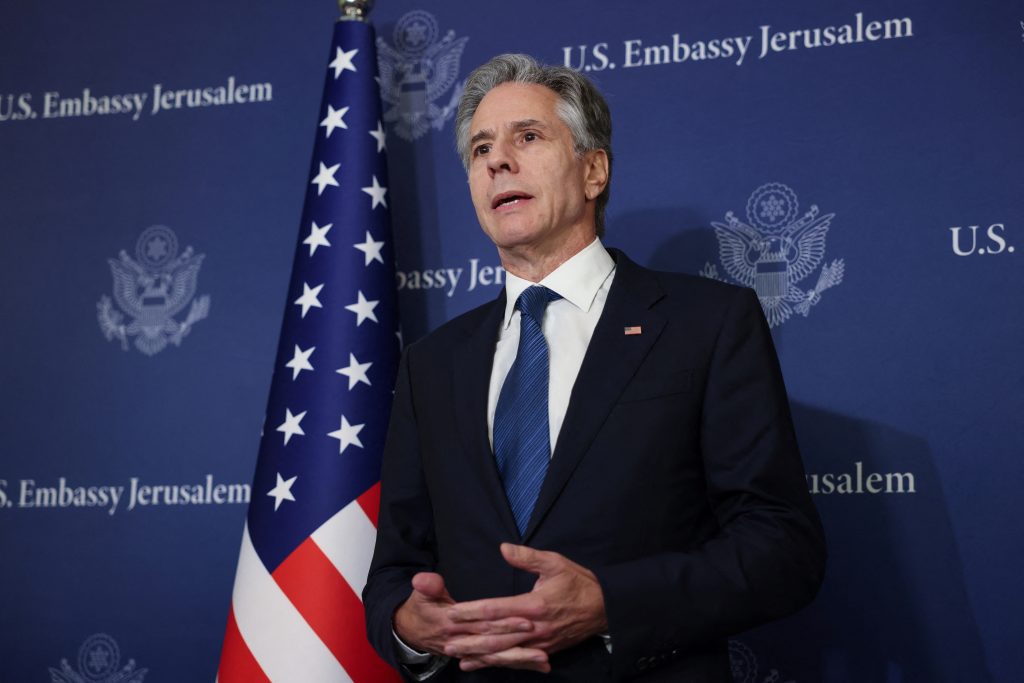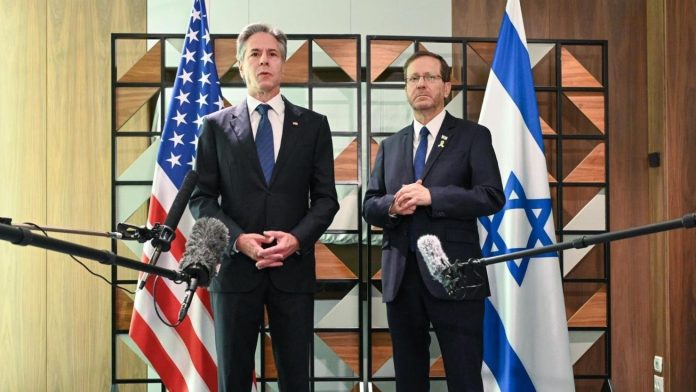U.S. Secretary of State Antony Blinken arrived in Israel on Tuesday, marking the first significant U.S. diplomatic effort aimed at securing a ceasefire in the Middle East since Israel killed Hamas leader Yahya Sinwar last week. Blinken’s visit also comes just weeks before the U.S. presidential election, which could bring shifts in American foreign policy. Despite ongoing efforts, diplomatic initiatives have so far failed to bring an end to the year-long war in Gaza and the broader conflict with Hezbollah in Lebanon.
Washington is hopeful that the elimination of Sinwar, the mastermind behind the October 7, 2023, attack on Israeli territory, may open the door to new peace talks. The U.S. believes his death could serve as a critical moment for negotiations, but Israel shows no signs of pausing its military operations in both Gaza and Lebanon. Blinken’s trip is focused on discussions with Israeli leadership, including Prime Minister Benjamin Netanyahu and Defense Minister Yoav Gallant, with attention given to Gaza’s future post-conflict governance and reconstruction.

Blinken’s visit occurs in the context of heightened violence, with air raid sirens sounding in Tel Aviv just hours before his arrival. Hezbollah, the Lebanese militant group, fired missiles at Israeli military positions near Haifa and Tel Aviv, demonstrating its ability to withstand the largest Israeli onslaught in decades. Israel retaliated with heavy airstrikes, targeting southern Lebanon and the suburbs of Beirut, killing 13 people near Beirut’s main state hospital, although the facility itself was not hit, according to Israeli military reports.
Despite his frequent trips to the region—this being his 11th since the start of the Gaza war—Blinken’s previous efforts to broker a ceasefire have not succeeded. Hamas, still holding dozens of hostages from the October 2023 attacks, has refused to release them without a commitment from Israel to halt the war. Israel remains resolute in its position, stating that the conflict will not end until Hamas is dismantled entirely, leaving much of Gaza in ruins as a result of Israel’s bombardment.
The conflict has further escalated in Lebanon, where Hezbollah has ramped up cross-border attacks in parallel with the Gaza war. In response, Israel has launched a ground campaign and massive airstrikes, displacing 1.2 million Lebanese civilians and decimating Hezbollah’s leadership. Washington and other allies hope that Sinwar’s death could present an opportunity for a breakthrough, potentially enabling Netanyahu’s government to claim that its objectives in Gaza have been achieved. However, Israeli officials appear determined to maintain military pressure to secure a stronger position ahead of the November 5 U.S. presidential election between Vice President Kamala Harris and former President Donald Trump.

Blinken’s agenda also includes discussions about Gaza’s future governance and reconstruction once the war ends. The U.S. has long advocated for Gaza to be reunited with the West Bank under the governance of the Palestinian Authority, which currently has limited control in the Israeli-occupied West Bank. In addition, Blinken is expected to address Israel’s anticipated retaliation for a missile strike launched by Iran on October 1. U.S. officials, speaking on the condition of anonymity, expressed concerns that Israel’s response could disrupt global oil markets and trigger a broader conflict with Iran.
Iran’s foreign minister, Abbas Araqchi, speaking from Kuwait, said that while Tehran does not seek war, it is prepared to defend itself if necessary. He also mentioned that Iran has made efforts to de-escalate tensions, although it remains vigilant in the face of potential hostilities.
The Gaza war began after Hamas-led fighters attacked Israeli communities on October 7, 2023, killing around 1,200 people and capturing more than 250 hostages. Israeli authorities have since reported that their airstrikes in Gaza have resulted in the deaths of more than 42,000 Palestinians, with thousands more presumed dead beneath the rubble of destroyed buildings. The war has spilled over into Lebanon, where Hezbollah has launched cross-border attacks in solidarity with Palestinians in Gaza. Israel’s military response has focused on dismantling Hezbollah’s infrastructure, aiming to secure the return of Israelis who fled their homes under rocket fire.

U.S. envoy Amos Hochstein met with Lebanese officials in Beirut earlier in the week to discuss the terms of a potential ceasefire between Israel and Hezbollah. While Israel is seeking more robust conditions than those agreed upon in the aftermath of the 2006 war with Hezbollah, which ended with a U.N. resolution, Hochstein noted that neither side had fully adhered to those terms. He emphasized the need for more stringent measures to ensure compliance from both Hezbollah and Israel, signaling that the U.S. is actively working to secure a long-term solution to the escalating regional conflict.
In conclusion, as Blinken embarks on this latest diplomatic mission, the stakes are high for both the Middle East and the U.S., with the potential for policy shifts looming after the presidential election. The situation remains fragile, with both Israel and Hezbollah locked in an increasingly destructive cycle of retaliation, while the broader international community looks for ways to bring the war in Gaza to an end and prevent further destabilization of the region.




